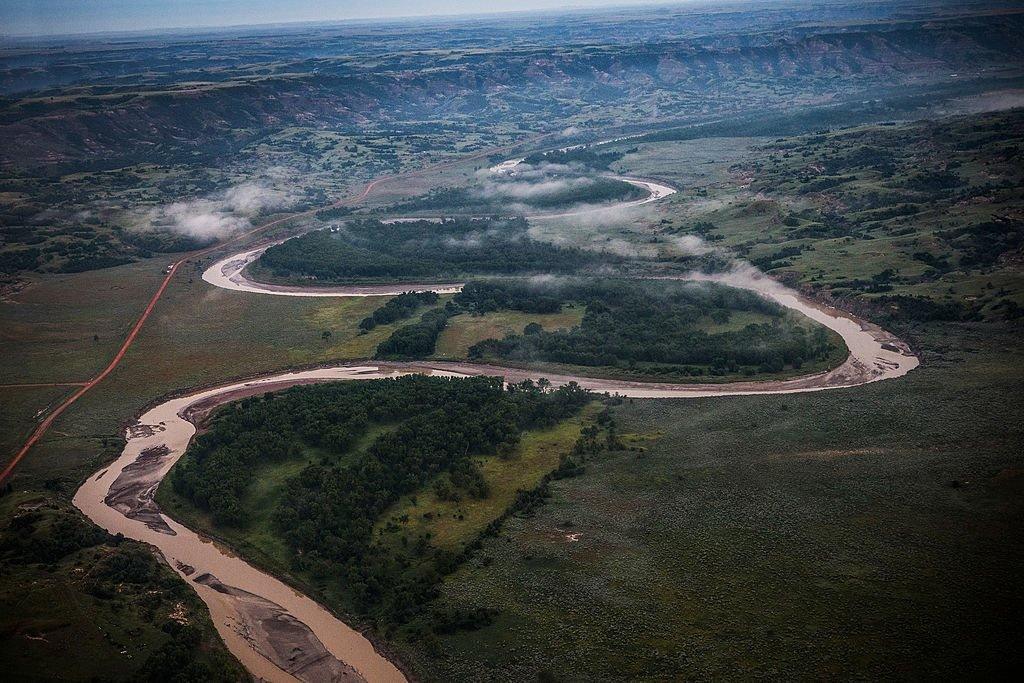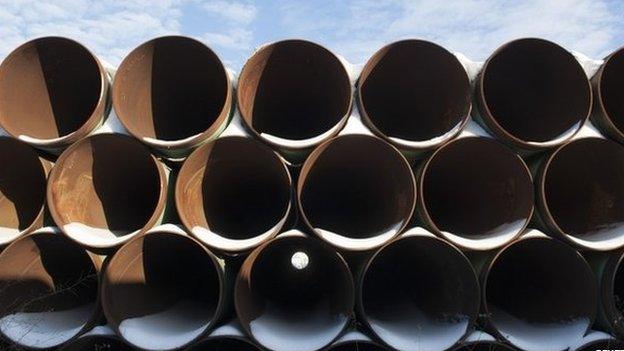Native American protesters disrupt work on oil pipeline
- Published

Protesters fear the pipeline could pollute local waterways
A group of Native American protesters has halted work on a large oil pipeline in the US state of North Dakota.
Construction was set to begin this month on the Dakota Access Pipeline, which is similar in length to the contested Keystone XL Pipeline.
The developers have filed a lawsuit in federal court against the protesters, seeking restraining orders and unspecified monetary damages.
Sixteen members of the Standing Rock Sioux Tribe have been arrested.
Between 200 and 400 people have gathered in total, some on horseback, others beating drums, close to the Sioux tribe's reservation.

The pipeline will cross the Missouri River
Among those arrested was David Archambault II, the leader of the Standing Rock Sioux Tribe, who was released after a day in custody.
The $3.7bn (£2.8bn) Dakota Access Pipeline, if completed, will cross the states of North Dakota, South Dakota, Iowa and Illinois.
The pipeline will transport up to 570,000 barrels of crude oil a day, stretching 1,172 miles (1886km).
It is just seven miles short of the planned Keystone Pipeline, which faced years of protest and a presidential review before it was scrapped in late 2015.
The new pipeline will also span land dotted with sacred Native American sites between the Cannonball and Heart rivers.
"It's a historic place of commerce where enemy tribes camped peacefully within sight of each other," said Jon Eagle Sr, in an interview with Indian Country Today, external. "In the area are sacred stones where our ancestors went to pray for good direction, strength and protection for the coming year. The stones are still there, and our people still go there today."
Although the pipeline will not directly cross an environmentally protected area or federally reserved indigenous land, under current proposals it will pass within half a mile of the Standing Rock Sioux reservation and traverse 209 rivers and creeks.

Sixteen protestors have been arrested so far in North Dakota
Protesters fear the pipeline could pollute water sources in their remote territory.
They also argue they were not properly consulted before the US Army Corps of Engineers approved the project in late July.
The holding company which owns Dakota Access LLC, Energy Transfer Partners, denies any wrongdoing.
"The Dakota Access Pipeline is committed to working with individual landowners to make accommodations, minimize disruption and achieve full restoration of impacted land," it says in a statement on their website, external.
Energy Transfer Partners is the largest transporter of oil in the US, by volume.
- Published21 January 2021
